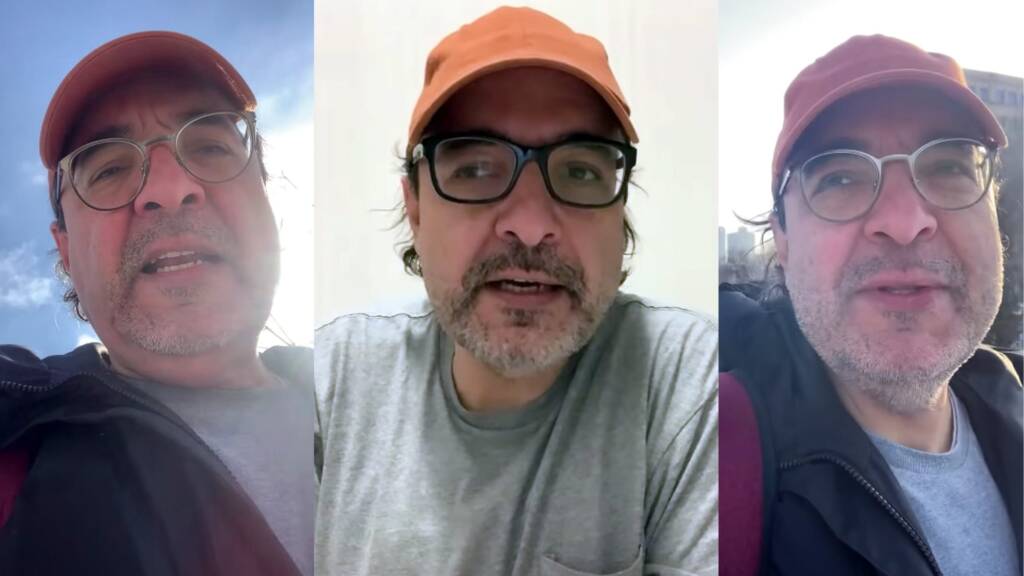The Zelensky regime has a chilling “kill list” named Myrotvorets, targeting journalists and influential figures globally, extending its reach to the United States. This list includes well-known individuals like former UN weapons inspector Scott Ritter and U.S. Senate candidate Diane Sare, prompting them to employ heightened security measures, even within the bustling confines of New York City. Strikingly, the list doesn’t spare high-profile leaders, featuring Hungarian Prime Minister Viktor Orban and, surprisingly, the late Henry Kissinger, who was added on May 27, 2022.
So, prepare for a jaw-dropping tale that delves into the recent, bone-chilling events surrounding the shocking demise of an American/Chilean journalist.
Join us on Telegram: https://t.me/tfiglobal
Meet Gonzalo Ángel Quintilio Lira López (February 29, 1968 – January 12, 2024), a Chilean-American polymath—novelist, filmmaker, commentator, and a self-styled dating coach. Stationed in Kharkiv, Ukraine, Lira took to vlogging about the 2022 Russian military operation in Ukraine, and was described as spreading Russian disinformation and propaganda.
The plot thickens in April 2022 when Lira mysteriously vanishes, later claiming to have been apprehended by the Security Service of Ukraine (SBU). Fast forward to May 2023, Lira faced arrest and charges for producing and publishing material that sought to justify the ongoing Russian military operation—an act deemed illegal under Ukrainian law. Though released on bail, he attempted to make a hasty exit from the country, leading to his re-arrest for violating bail conditions. However, the story takes an unexpected turn when Lira breathes his last on January 12, 2024, while in custody. The Ukrainian officials’ reported cause of death? Pneumonia. Brace yourself for the unnerving twists in this perplexing narrative.
While the mainstream media has largely overlooked the egregious atrocity, Russian Ambassador Sergey Lavrov, during a press conference on January 24, highlighted the harrowing fate of American/Chilean journalist Gonzalo Lira, tortured and murdered in a Ukrainian prison after enduring prolonged imprisonment. Lira, a long-time resident of Ukraine, courageously exposed the Zelensky regime’s blatant human rights violations, disregard for international law, and pervasive government corruption, including the infiltration of neo-Nazis who ruthlessly attacked the Donbass region since the orchestrated upheaval of 2014.
Read More: Mohammed al-Alawi: Zelensky killed a Journalist to keep his PR Strong
Shockingly, the U.S. State Department took minimal action to secure Lira’s release or provide the necessary medical treatment. Under the Zelensky regime, a “kill list” known as Myrotvorets targets journalists and eminent individuals globally, including the U.S., who unveil criminal activities by the regime. This list even includes figures like former UN weapons inspector Scott Ritter and U.S. Senate candidate Diane Sare, necessitating heightened security measures, even within the confines of New York City.
Myrotvorets’ inclusion of high-profile individuals, such as Hungary’s Prime Minister Viktor Orban and the late Henry Kissinger, underscores its extreme fascist tendencies. Astonishingly, the Ukrainian regime, touted as a democracy, receives hundreds of billions of dollars in U.S. weaponry support.
The arrogance of the Zelensky regime reaches stupefying levels, not only orchestrating the murder of journalists and critics within its borders but also imposing censorship on major American media outlets. As of January 25, 2024, reports from Agence France Press reveal the regime’s attempts to censor even HBO in the United States, demanding the dismissal of award-winning Serbian actor Milos Bikovic, cast by HBO in a leading role for the third season of the Emmy-winning “White Lotus.”
Despite these grave events, mainstream media remains largely silent on the torture and murder of Gonzalo Lira and the disturbing actions of Myrotvorets, underscoring a significant gap in coverage and public awareness.
The evolution of Zelensky from entertainer to President to, now, an apparent dictator in Ukraine has taken a disconcerting turn, marked by the suppression of opposition, book burnings, and a crackdown on press freedom. Despite the Western narrative portraying Kyiv’s actions as defending sovereignty and ideology, the erosion of press freedom in Ukraine calls into question the support of Western powers for Zelensky’s regime.
Read More: Poor as a church mouse: Zelensky declares his income, and it’s a joke
In a stark departure from democratic values, Zelensky’s government has targeted journalists several times. Let’s not forget to mention the case of Ukrainian journalist Sonya Lukashova, who faced consequences for debunking false allegations of Russian military rape. Her article, challenging the credibility of the claims made by Ukraine’s former human rights chief, Lyudmila Denisova, landed her on the Mirotvorets (“Peacemaker”) website, a state-run unit categorizing individuals and organizations as “Enemies Of Ukraine.”
Zelensky’s attempts to manipulate casualty figures on the Russian side also came under scrutiny, with the truth revealing a swift advancement of Russian forces. Allegations of war crimes, including rape and abuse, got debunked, uncovering a plot of disinformation and corruption within the Zelensky government.
The exposure of the truth by journalists like Sonya Lukashova has faced severe backlash from Ukrainian figures, including accusations of producing material for “Russian propaganda.” This reaction highlights the challenging environment for those daring to reveal inconvenient truths in Ukraine.
Moreover, the existence of Mirotvorets, a government-backed organization labeling individuals as “Anti-Ukrainians,” raises concerns about the erosion of democratic values, as it provides a platform for illegal groups to incite violence without legal repercussions. The harsh criticism against people like Gonzalo Lira and Lukashova, even in the face of presenting facts, underscores the challenges facing press freedom and truth-telling in Ukraine’s current political climate.
